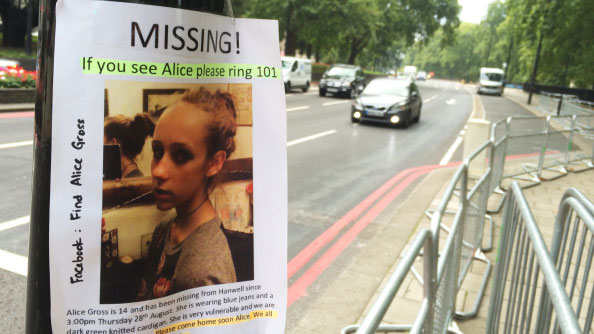Police seek murder conviction details of Alice Gross suspect
The Metropolitan police contact their Latvian counterparts for details of a murder conviction against Arnis Zalkalns, the prime suspect in the disappearance of teenager Alice Gross.

Mr Zalkalns served seven years in prison in his native country after stabbing his wife Rudite Zalkalns to death in 1998.
The Met police have faced criticism after it emerged that detectives searching for Mr Zalkalns waited for four days before approaching officials in Latvia, according to The Times.
Detectives have said that Mr Zalkalns was also arrested on suspicion of indecently assaulting a 14-year-old girl in 2009, but no further action was taken.
Police say that the search for Alice is their biggest operation since the 7/7 London bombings, with 600 officers from eight forces involved.
A Scotland Yard spokesman said: “We are maintaining a close and productive relationship with the Latvian authorities in relation to this investigation. We are not going to elaborate on the nature of information sharing with Latvian authorities.”
Alice, 14, went missing on 28 August. Fifteen minutes after her last sighting on CCTV in Ealing, west London, Mr Zalkalns was seen riding his bike past the same spot. The 41-year-old has also been missing since 3 September.
No UK record
His passport was found at his house in Ealing, but Latvian police say they cannot rule out whether he has returned to the country.
The general labourer, who works at a building site in Isleworth, west London, is thought to have come to the UK in 2007.
Police said on Thursday that it was their understanding there was no record in the UK of his murder conviction.
A reward of up to £20,000 is being offered for anyone who has information that leads detectives to find Alice. Mr Zalkalns is described as white, 5ft 10ins, of stocky build and with dark brown hair that he normally wears tied in a ponytail.
Police have said that he “potentially poses a risk to the public” and asked anyone who sees him not to approach him and to dial 999.




